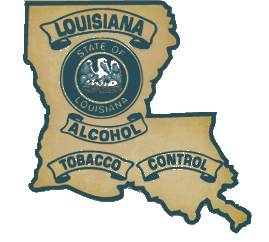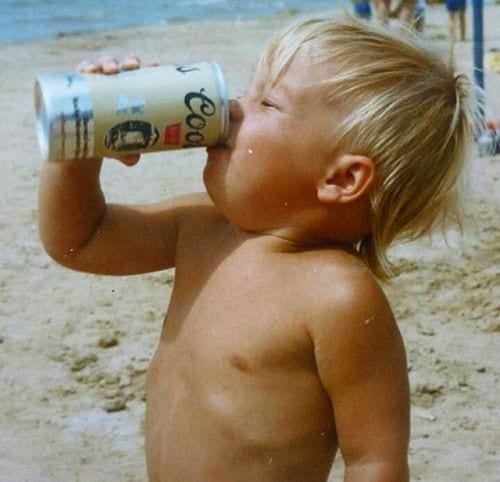Louisiana Alcohol and Tobacco Class – Responsible Vendor Program
The Responsible Vendor program in Louisiana was started in 1997 and has been a very successful effort in terms of increasing the safety of serving alcohol and tobacco products in Louisiana.
The program requires that any person serving alcohol or tobacco products in Louisiana receive and complete a training course to obtain an RV Server Permit within 45 days of their hire. This rule covers anyone who deals with customers who are purchasing alcohol or tobacco products in Louisiana. The Louisiana Office of Alcohol and Tobacco Control (ATC) allows alcohol training through the use of online courses as well as in person training. Alcohol server training is required in the State of Louisiana for any employee of a vendor who is authorized to sell alcohol and tobacco products in the normal course of their business. The alcohol sales training program must be completed within 45 days of their hire date. The RV Class will include a final exam for the alcohol seller and, according to Louisiana law, this ATC training must be approved by the Louisiana ATC and provided by an authorized vendor. The certification is valid for four years and must be renewed to maintain compliance.

The program is governed and monitored by the Louisiana Alcohol and Tobacco Control (ATC). The retail locations at which licensed servers are employed are required to keep employment records on site for inspection by ATC Enforcement Agents. ATC Enforcement Agents also routinely check the compliance of licensed vendors and their servers. Servers found to sell or serve alcohol/tobacco products in violation of Louisiana can be held liable in criminal or civil court depending on the violation. ATC Agents have begun issuing administrative citations directly to RV Servers for violations of Louisiana Title 26 violations.

The ATC also governs the providers who are authorized to provide training and certification in this program. A valid certificate can only be issued by a Louisiana ATC Authorized Vendor. The ATC publishes a list of authorized providers, which can be found here.
There are several companies advertising online that offer deeply discounted certification courses for the Louisiana ATC but are not authorized. It is your responsibility to make sure that the course you are taking is valid and accepted by the ATC.
Additionally, local town, city and parish ordinances may also govern the issuance and management of permits to serve alcohol and tobacco products.
Course Content
The content of the Louisiana responsible vendor training course is similar for all providers and a listing of the topics required to be taught is provided by the Louisiana ATC. The topics that will be covered are:
- Responsible Vendor Law
- Vendor Responsibilities
- Server and Security Personnel Responsibilities
- Louisiana Laws on Serving Alcohol and Tobacco Products
- Louisiana Laws on Serving Alcohol: Identification
- Sale and Service of Alcohol
- Alcohol Safety Training
- How to Detect False Identification
- ATC Regulation of Responsible Alcohol and Tobacco Sales to Minors
- Effects of Alcohol on Your Body
- Blood Alcohol Concentration
- Alcohol and Medication
- Alcohol and Driving Motor Vehicles
- Sale of Alcohol to Intoxicated Persons
- Pathways of Tobacco
- Effects of Tobacco on Your Body
- Tobacco Sales: Signage and Vending Machine Requirements

You will also learn:
- The responsibilities of a Responsible Vendor business owner
- The responsibilities of an alcohol server
- The responsibilities of security
- The appropriate age to purchase alcohol in Louisiana
- The appropriate age to purchase tobacco, alternative nicotine and vapor products in Louisiana
- What types of identification customers can show to purchase alcohol/tobacco products
- The effects of alcohol on the body and with medications
- Information on drinking while driving
Louisiana Responsible Vendor Law
The server training courses shall include but not be limited to the following subject areas:
- Classification of alcohol as a depressant and its effect on the human body, particularly on the ability to drive a motor vehicle
- Effects of alcohol when taken with commonly used prescription and nonprescription drugs
- Absorption rate, as well as the rate at which the human body can dispose of alcohol and how food affects the absorption rate
- Methods of identifying and dealing with underage and intoxicated persons, including strategies for delaying and denying sales and service to intoxicated and underage persons
- State laws and regulations regarding the sale and service of alcoholic beverages for consumption on and off premises
- Parish and municipal ordinances and regulations, including but not limited to the hours of operation, noise, litter and other odrinances that affect the sale and service of alcoholic beverages for consumption on and off premises
- State and federal laws and regulations related to the lawful age to purchase tobacco products and age verification procedures and requirements
- The health risks and consequences associated with the consumption of tobacco products including but not limited to their addictive nature
- For security personnel, the handling of disruptive customers and customer altercations
A server or security personnel who violates alcohol or tobacco server law is subject to all of the following penalties:
- Suspension or revocation of their permit
- Monetary fine
- Criminal citations
A vendor who sells or serves to minors will not have its alcohol or tobacco permit revoked in the following instances:
- On a first sale of an alcoholic beverage by any server or security personnel to an underage or intoxicated person or the first illegal sale or service of a tobacco product by any server or security personnel to an underage person in any twelve month period
- On the first citation for consumption by a customer of alcoholic beverages on the premises of a Class “B” vendor in any twelve month period, unless the vendor had knowledge of the violation, should have known about such violation, or participated in or committed such violation
A vendor may not use as a defense the fact that he was absent from the licensed premises at the time a violation occurred if the violations are flagrant, persistent, repeated, or recurring.
ATC takes into consideration compliance with the responsible vendor program and other methods taken by the business owners to prevent the sale of alcoholic beverages and tobacco products to persons under their respective legal ages.

Responsible Vendor Server Responsibilities
Q: I am one of the vendors defined in the program. What are my responsibilities?
A: As a Responsible Vendor, you must do all of the following to maintain your Responsible Vendor certification:
- Provide ATC with a completed affidavit
- Require all servers and security personnel to attend an approved server or security personnel training course within 45 days of the first day of employment. Server permits are valid for four years. You must ensure that all servers and security personnel attend refresher courses every four years
- Pay an annual fee of $50 per licensed establishment holding a Class A-General, Class A-Restaurant, Class B or Class C-Retail permit
- This fee is assessed on all new and all renewal applications for retail dealers of alcoholic beverages and/or tobacco products
- The fee funds the development and administration of the Responsible Vendor program
- Keep the handbook current (You may request updates from ATC)
- Provide new employees already Responsible Vendor certified with the rules and regulations applicable in the parish or municipality of your establishment’s location
- Maintain server and security personnel training records, which must include the following information for all servers and security personnel:
- Name of server
- Date of birth
- Social Security number
- Date of hire
- Keep a copy of the above server/security personnel records at your licensed premise at all times for inspection by ATC agents or other peace officers.
- Post signs on the licensed premise informing customers of your policy against selling alcohol and/or tobacco products to underage persons
Server and Security Personnel Responsibilities
Q: I am employed as a server or as security for a vendor. What are my responsibilities under this program?
A: Servers and security personnel have the following responsibilities under the Louisiana Responsible Vendor program:
- Complete an approved responsible vendor training course within 45 days of employment. Get the training and obtain your Louisiana Responsible Vendor Certification (all servers in Louisiana who are in involved in the sales of alcohol beverages). You may complete your certification online.
- Your RV card will be available on the ATC website 7-10 days after completion of the course. You may print/download your RV certificate on the ATC website
- Make your permit available for inspection immediately if asked by an ATC agent or other peace officer
- Keep your Responsible Vendor server certification current
- Your Responsible Vendor permit will expire on the last day of the month FOUR years after the month that you completed the Responsible Vendor course.
- To renew, attend and pass an approved Responsible Vendor course.
Serving Alcohol and Tobacco: Identification
Forms of acceptable identification in Louisiana
-
Customers must show one of the following when asked to present identification for service:
-
State issued driver’s license from Louisiana or another state (including duplicates)
-
Special identification card from Louisiana or another state
-
Passport or visa issued by the federal government or another country or nation
-
Military or federal ID issued by the federal government
-
- All of the above forms of identification must be current and valid and must include
- A picture of the person presenting the ID
- Date of birth
- The above ID are not valid if they are:
- Defaced
- Expired
- Altered
Identification policies should be established to decrease the chances that a minor will be served alcohol or tobacco. These policies should include:
- Refusing to sell to persons without a valid ID.
- Following set procedure when checking each ID:
- Checking the expiration date of the ID;
- Checking the birth date;
- Checking the date the ID was issued;
- Checking the photo or resemblance to the buyer; and
- Checking the ID of everyone at the bar or counter to make sure everyone complies with the age restrictions.
Studies have shown that younger servers are less inclined to check identification and more likely to serve underage persons. Minimum age of seller policies will help reduce the likelihood that underage persons will obtain alcohol or tobacco. Louisiana liquor laws ensure responsible alcohol service through the Louisiana RV program.
Serving Alcohol and Tobacco: Digital Identification
The Office of Alcohol and Tobacco Control (ATC) offers the following guidelines when accepting electronic identification for the purchase of alcohol and/or tobacco products:
1.LA Wallet is the ONLY ACCEPTABLE form of electronic identification.
2.It is at the discretion of each business whether they will accept the digital ID.
3.Businesses required by ATC to utilize ID scanners must still request a physical ID if scanners are unable to read the digital ID.
4. If the person accepting the digital ID is unable to read it, it will be as if the licensee did not present a driver’s license or ID at all.
5.All other rules and guidelines still apply when ensuring an individual is of legal age to purchase and/or consume alcohol and tobacco products.

Louisiana office of Alcohol and Tobacco Control – Regulation of Alcohol and Tobacco Sales to Minors
Alcohol use by young people is the most serious drug problem facing our nation and our state. Alcohol kills more young people than all illicit drugs combined, is a factor in the three leading causes of death among 15-24 year olds and is a gateway drug to other drugs.3
ATC is committed to preventing underage access to alcohol and tobacco products. ATC enforces the prohibition against selling alcohol to minors by frequently conducting compliance checks. A compliance check is an unannounced inspection by ATC agents to determine if an establishment, employees, and customers are complying with alcohol and tobacco laws.
There are many mechanisms by which an establishment can be selected for a compliance check. The most common method is being selected in a random sample of all permit holders. Another way establishments are selected is in response to complaints received by ATC concerning alleged illegal activity.
If a business or its employee fails a compliance check, the business or employee will be issued a citation
by an agent. The citation indicates the date and time of the offense, who committed the violation, and the date on which a hearing will be set.
At least 10 days prior to the hearing, you will receive a notice of fine or summons. The notice will direct you to either pay a fine prior to the hearing or appear and contest the fine. When you “contest” a fine, it means you disagree with the issuance of the citation and want to challenge the penalty. When you pay the fine prior to the hearing, you are admitting guilt and agreeing to the penalty.
It is not a defense to a citation that a vendor was absent from the licensed premises at the time that a violation occurred, if the violation was flagrant, persistent, repeated, or recurring.
For detailed Louisiana alcohol-related accidents and injury statistics, please visit http://datareports.lsu.edu/.

Sale of Alcohol to Intoxicated Persons
Remember: Alcohol seller-servers cannot sell or serve alcohol to an intoxicated person. As a server, you should always assess the nature and magnitude of a person’s condition prior to selling to or serving that person. Consequently, server intervention could play a very important role in reducing drunk-driving accidents. While the liability for injuries caused by driving under the influence of alcohol lies primarily with intoxicated drivers themselves, that is not the case for serving alcohol to minors. You may be responsible for injuries caused by a minor to whom you serve alcohol illegally.
The following are behavioral signs of intoxication that servers should observe when determining whether to continue to serve an individual:
1. Lessened inhibitions (increased lack of restraint in social settings)
2. Impaired judgment
3. Slow reactions
4. Decreased coordination
5. You may also notice slurred speech, glassy eyes, strong smell of alcohol, and exaggerated emotional outbursts. They may also have trouble walking or making decisions, and may annoy other customers.
If you have any doubts about whether a person is intoxicated you must refuse to sell alcohol to them.
Refusing Entry
Intoxicated persons should not be allowed to enter your establishment under any circumstances, short of physical confrontation. If a customer insists on re-entry and the door person feels a physical confrontation will ensue, admit the party and either call the police or security, whichever is applicable.
Terminating Service
An employee who thinks a customer is intoxicated should cease serving the customer immediately and inform the manager. Company policy should dictate whether an employee is permitted to terminate service or if this decision is a management function.
If the decision to cease service to a customer is an employee function and the customer in question attempts to order more drinks, the employee should acknowledge the order, but immediately get the manager to visit the table. The manager should introduce himself, with title, and be friendly, yet firm. When the decision is made to cease serving the customer, managers should back up the decision of their staff members, regardless of who the customer might be.
When terminating service, staff or management should always remain calm. Avoid antagonizing the customer with statements like, “You’ve had way too much to drink,” or, worse, “I can’t serve you – you’re drunk.” Instead, let the customer know that your job and license would be at risk if you served another drink and that you are doing this for his own safety.
When dealing with a person who is “out of control,” the psychological message to give the customer is one of control. If the customer becomes offended or argumentative, don’t attempt to reason with him. If the customer becomes belligerent or physically threatening, get assistance from other staff or security personnel.
FAQs
Q: Who is required to have a responsible vendor permit?
Any employee of an alcoholic beverage or tobacco dealer who is authorized to sell or serve alcoholic beverages or tobacco products, alternative nicotine products, or vapor products or who deals with customers who purchase or consume alcoholic beverages or tobacco products must obtain a responsible vendor permit within 45 days of employment.
Q: Is the owner of an alcoholic beverage or tobacco outlet required to have a responsible vendor permit?
No, owners are not required to obtain a responsible vendor permit. However, owners who sell or serve alcoholic beverages or tobacco products to persons under the legal age face maximum penalties.
Q: Where can I take a responsible vendor course?
A: Responsible vendor courses are provided across the state at class room locations and are also available online. Upon completion of an online course, you should be able to print your temporary certificate.
Q: How/where do I obtain my responsible vendor permit?
A: Responsible vendor permits are available on the ATC website under “permits” then “responsible vendor” then “print/download your RV permit”
Q: How long is my responsible vendor permit good for?
A: Responsible vendor permits expire every four years on the last day of the month in which you took the responsible vendor course.
Q: I have a Louisiana responsible vendor card. Do I need a Parish card?
A: Any vendor or server subject to a local ordinance requiring participation by the vendor or its employees in a server or security personnel training or licensing program shall be exempt from the local server training and licensing regulation if the vendor is certified as a responsible vendor under the provisions of the State law. However, this does not apply to any local seller or server licensing regulations or ordinances that were in effect on June 1, 1997. Please check with your local licensing authority for additional information.
Q: If I send my employees to a responsible vendor class and they still sell to minors, am I responsible?
A: In this scenario, the business would receive a warning for the first violation. The business would receive a citation for any additional violations within a three year period. However, when assessing penalties to permit holders, ATC takes into consideration compliance with the responsible vendor program and other methods taken by business owners to prevent the sale of alcoholic beverages and tobacco products to person under the legal drinking age.
Q: If I pay for my employees to attend a responsible vendor class, do their permits belong to me?
A: No, responsible vendor permits belong to the servers who took the class.
Q: How long do my employees have to obtain a responsible vendor server or security personnel permit?
A: Within 45 days of commencement of employment.

